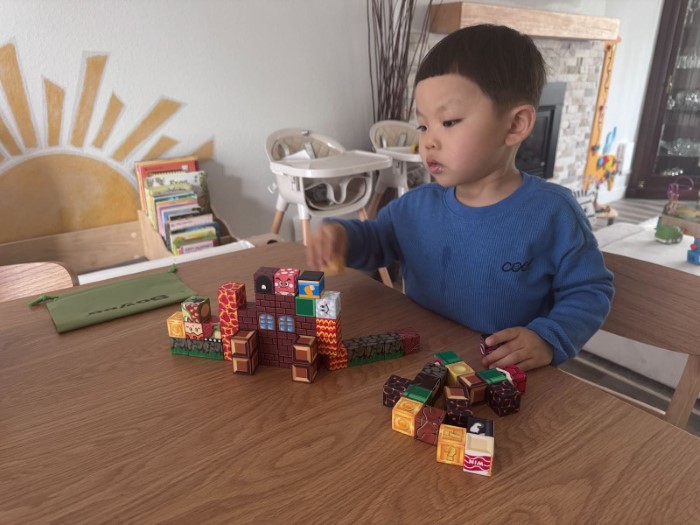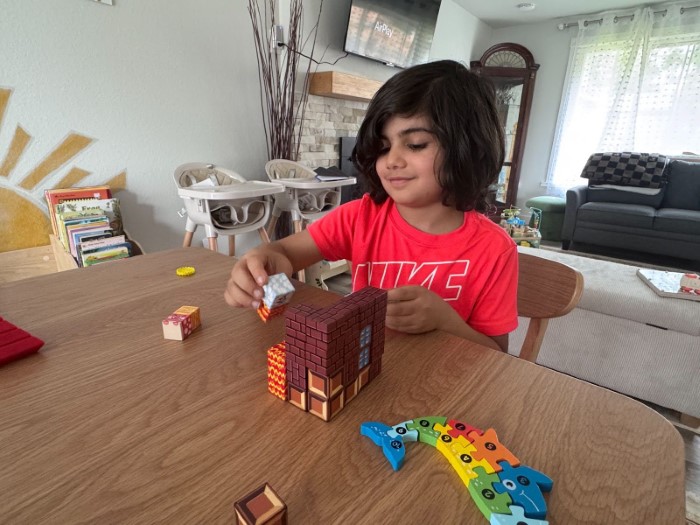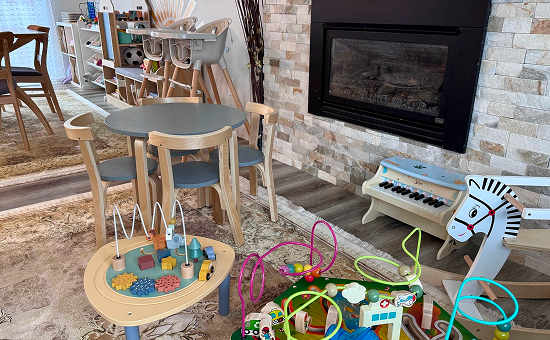Fostering healthy behaviors like sharing and self-soothing in toddlers and preschoolers is crucial for their emotional and social growth. Through structured environments like daycare and child care, parents and caregivers can nurture positive behaviors that set the foundation for lifelong success. This article explores expert childcare behavior strategies to promote early childhood growth. For in-depth tips to support toddler behavior and preschooler development, read on.
Introduction to Healthy Behavioral Development
Healthy behavioral development in early childhood lays the groundwork for emotional resilience, social skills, and academic success. For toddlers and preschoolers, behaviors like sharing, self-soothing, and cooperation are critical milestones. Parents and caregivers play a pivotal role in nurturing these positive behaviors through consistent guidance and supportive environments.
Why Behavioral Development Matters
Early childhood is a critical period when children develop foundational skills for interacting with others and managing emotions. Positive behaviors fostered during this stage—such as empathy and self-regulation—contribute to strong relationships and mental well-being. Research shows that children with healthy behavioral development are better equipped to handle challenges in school and beyond.
The Role of Parents and Caregivers
Parents, alongside providers in daycare and child care settings, share the responsibility of guiding young children. By modeling positive behaviors and providing structured routines, caregivers help children build confidence and emotional intelligence, essential for early childhood growth.
Understanding Toddler and Preschooler Behavior
To promote healthy behaviors, it’s essential to understand the developmental stages of toddlers and preschoolers. Each age group has unique needs and capabilities that influence their behavior.
Developmental Milestones in Toddlers (1–3 Years)
Toddlers begin to explore independence, often expressing emotions through actions rather than words. Key milestones include:
- Developing basic emotional regulation, like calming down with guidance.
- Engaging in parallel play, where they play alongside peers.
- Responding to simple instructions, a foundation for positive behaviors.
Caregivers in infant care or home day care settings can support these milestones by offering consistent routines and gentle encouragement.
Behavioral Traits in Preschoolers (3–5 Years)
Preschoolers show more advanced social skills, such as taking turns and expressing empathy. They begin to understand group dynamics, making daycare environments ideal for fostering cooperation. Key traits include:
- Increased verbal communication to express needs.
- Ability to follow rules with clear guidance.
- Growing curiosity and problem-solving skills.
Factors Influencing Behavior
Behavior is shaped by genetics, environment, and social interactions. Consistent routines in daycare Bothell settings, for example, provide stability that helps children feel secure, reducing negative behaviors like tantrums.

Key Behaviors to Foster in Early Childhood
Focusing on specific behaviors like sharing, self-soothing, and social skills sets the stage for healthy development. These skills are adaptable for both toddlers and preschoolers.
Teaching Sharing and Cooperation
Sharing is a foundational social skill. To encourage it:
- Model Behavior: Demonstrate sharing during playtime or meals.
- Use Group Activities: In child care Bothell programs, group games like passing a ball teach turn-taking.
- Praise Efforts: Acknowledge when a child shares, reinforcing positive behaviors.
Promoting Self-Soothing Techniques
Self-soothing helps children manage emotions independently. Effective strategies include:
- Deep Breathing: Teach toddlers to take slow breaths when upset.
- Comfort Objects: A favorite toy or blanket can provide security.
- Guided Calming: Caregivers can use soft voices to guide children through emotional moments.
Building Social Skills for Preschoolers
Preschoolers thrive in environments that encourage communication and empathy. Try:
- Role-Playing: Act out scenarios like resolving conflicts to build empathy.
- Storytelling: Use books to discuss feelings and social norms.
- Group Projects: Collaborative tasks in daycare settings foster teamwork.
Strategies for Promoting Positive Behaviors
Caregivers can use evidence-based strategies to nurture healthy behaviors, tailored to toddler and preschooler development.
Positive Reinforcement Techniques
Positive reinforcement encourages desired behaviors through rewards. Examples include:
- Verbal praise like “Great job sharing your toy!”
- Small rewards, such as stickers for completing tasks.
- Consistent acknowledgment to build confidence.
Setting Clear Boundaries and Expectations
Children thrive with clear rules. In home day care or daycare settings:
- Use simple, age-appropriate instructions (e.g., “We share toys with friends”).
- Maintain consistent consequences for breaking rules.
- Involve children in setting expectations to foster ownership.
Modeling Healthy Behaviors
Caregivers are role models. Demonstrate:
- Patience during stressful moments.
- Kindness in interactions with others.
- Problem-solving skills during conflicts.
Engaging Activities for Behavioral Growth
Interactive activities promote emotional and social skills:
- Puppet Shows: Use puppets to teach empathy and sharing.
- Music and Movement: Songs with actions encourage cooperation.
- Art Projects: Collaborative crafts build teamwork and creativity.

The Role of Daycare and Child Care in Behavioral Growth
Structured environments like daycare and child care play a significant role in fostering positive behaviors, offering opportunities for socialization and emotional growth.
How Daycare Supports Social Development
Daycare programs provide peer interactions that teach children to navigate social dynamics. Group activities, such as circle time, help toddlers and preschoolers practice sharing and listening.
Benefits of Home Day Care for Individual Attention
Home day care settings offer personalized care, ideal for infant care and toddler behavior. Smaller groups allow caregivers to tailor activities to each child’s needs, fostering self-soothing and emotional regulation.
Choosing the Right Childcare Environment
When selecting a daycare or child care program, look for:
- Qualified staff trained in early childhood growth.
- Structured routines that balance play and learning.
- A nurturing environment that prioritizes positive behaviors.
Addressing Common Behavioral Challenges
Behavioral challenges are a normal part of development. Addressing them effectively builds resilience.
Managing Tantrums and Emotional Outbursts
Tantrums often stem from frustration or unmet needs. Strategies include:
- Redirection: Shift focus to a new activity.
- Calm Communication: Use a soothing tone to acknowledge feelings.
- Time-In: Sit with the child to help them process emotions.
Overcoming Shyness or Aggression
For shy children, encourage gradual social engagement through small group activities. For aggression:
- Teach alternative ways to express frustration, like using words.
- Model calm responses to conflicts.
- Reinforce positive interactions with praise.
Supporting Transitions and Routine Changes
Transitions, like starting daycare, can be challenging. Help children adapt by:
- Preparing them in advance with stories or visits.
- Maintaining consistent routines at home and in child care.
- Offering comfort during changes, such as a familiar toy.
Long-Term Benefits of Healthy Behavioral Development
Investing in early behavioral development yields lifelong benefits, from academic success to emotional well-being.
Academic and Social Success
Children with strong social skills are better prepared for school. Sharing and cooperation foster collaboration, while self-soothing aids focus and resilience.
Emotional Resilience and Well-Being
Healthy behaviors build emotional intelligence, helping children manage stress and form strong relationships. Studies show early emotional regulation reduces anxiety in later years.
Building Strong Parent-Child Bonds
Consistent caregiving strengthens trust. Engaging in activities like reading or playtime fosters communication and connection.
Conclusion: Partnering with Kidoheaven for Child Development
Fostering healthy behaviors in toddlers and preschoolers is a rewarding journey that sets the stage for lifelong success. By focusing on sharing, self-soothing, and social skills, parents and caregivers can support early childhood growth. At Kidoheaven, we understand the importance of nurturing positive behaviors. Our daycare and child care programs in Bothell provide structured, caring environments tailored to toddler behavior and preschooler development. Explore our services to discover how we can partner with you to support your child’s growth.
Why KidoHeaven Stands Out
✅ Licensed in Washington State
✅ Aligned with Early Achievers standards
✅ Working Connections subsidy accepted
✅ Daily updates via Brightwheel
✅ Located in Bothell, serving Mill Creek, Lynnwood & nearby areas
✅ Nutritious snacks, safe outdoor space, & positive mealtime routines
📞 Call 206-734-2040 to schedule a tour
🌐 Enroll now
Follow Our Mealtime Moments
Stay updated with more beautiful outdoor meals and daily learning routines on:
Instagram | Facebook | Nextdoor | Yelp | Winnie | YouTube | Upwards
FAQ
1. How can I teach my toddler to share?
Model sharing during play, praise efforts, and use group activities to practice turn-taking.
2. What are effective self-soothing techniques for preschoolers?
Teach deep breathing, offer comfort objects, and guide them through calming exercises.
3. How does daycare influence toddler behavior?
Daycare provides structured socialization, teaching cooperation and emotional regulation through peer interactions.
4. What should I look for in a child care program?
Choose programs with qualified staff, consistent routines, and a focus on positive behaviors.
5. How can I manage my child’s tantrums at home?
Use redirection, calm communication, and time-ins to help children process emotions.
6. Are there activities to boost social skills in preschoolers?
Role-playing, storytelling, and group projects encourage communication and empathy.
7. How does early behavioral development impact school success?
Positive behaviors like sharing and self-regulation prepare children for academic and social challenges.



